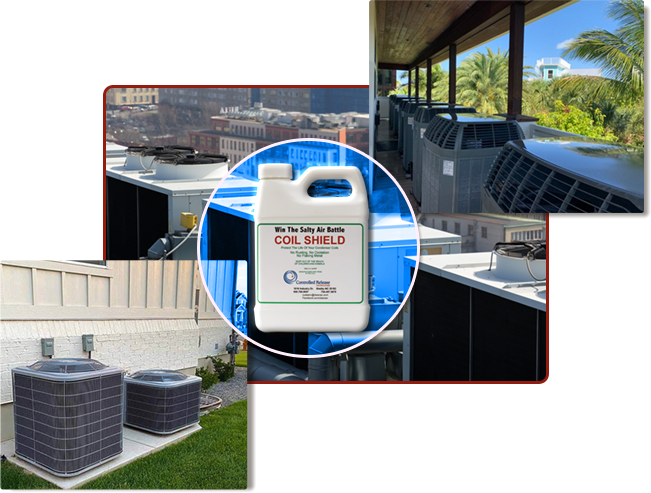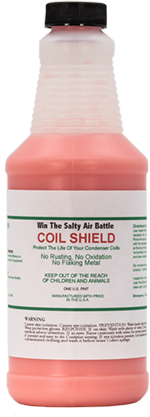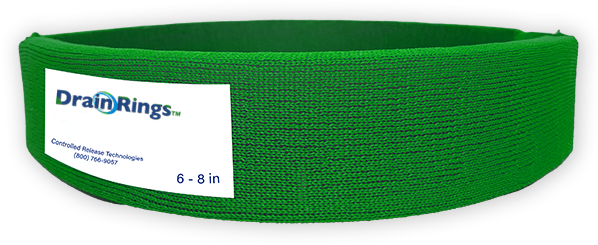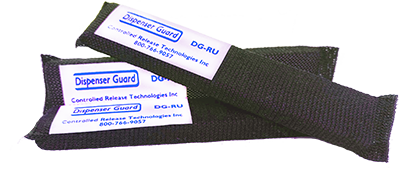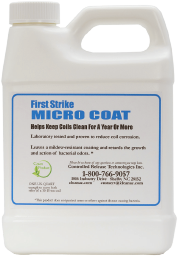Weatherproof outdoor HVAC coils
Coil Shield is a conformal molecular barrier that protects condenser coils from corrosion, mineral scale and other harmful weathering effects, including salt spray corrosion.
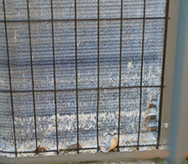
Corrosion
Coil and fin corrosion inhibits heat transfer, making the unit less effecient and more exspensive to run. There are multiple causes for corrosion, such as moisture, chemicals, and acids. Eventually as corrosion progresses, refrigerant begins to leak and ultimately the unit fails.
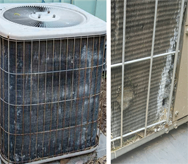
Coast Corrosion
Coastal areas have high salt content. When droplets of salty ocean water evaporate, the salt content is left floating in the air. When salt settles on HVAC fins and coils it inhibits heat transfer and accelerates corrosion.
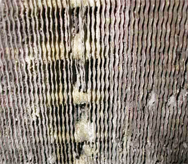
Mineral Scale
All water, regardless of location contains minerals. When water evaporates it leaves behind minerals that develop scale on condenser coils. Buildup on condenser coils inhibits heat transfer, which lowers unit efficiency
Coil Shield is the easy spray on solution that provides long-term protection against scale and corrosion, without inhibiting heat transfer.
Coil Shield
- Preventative Product
- Advanced Technology
- Independently Tested
- Protects against scale and corrosion
- Protects against salt-spray corrosion
- One coating can last a year or longer
- No loss of heat transfer
- Low VOC
Independent Testing
Coil Shield was put to the test in an accelerated weathering chamber. The test inflicted salt spray, UV light exposure, heat, and industrial chemical exsposure.
Independent studies in an accelerated weathering chamber showed that Coil Shield treated coils performed for at least 4,000 hours. The equivalent of a year in the harshest weather conditions. At this point the test was stopped. The coils treated with Coil Shield were still structurally intact while untreated fins were falling off copper tubes.

Coil Shield was also field tested in evironments such as a Florida summer, with over 4000 hour results!
Coil Sheild is easy to apply
Anyone can easily apply Coil Shield in a matter of minutes. Thoroughly clean the unit, then spray Coil Shield on outdoor coils. It's that easy. Plus Coil Shield is water based with a low VOC, making it safe to spray
One gallon coats a 50 ton coil
Available in:
Coil Shield is a great value.
Don't waste money on higher energy bills or unit replacement
Coil Shield prevents problems before they start.
No one wants to be without cool air during the hot days of summer. Prevent mineral buildup, corrosion, salt-spray corrosion, and the inconvenience of unexpected unit failure with Coil Shield.
Coil Shield is a great product for all AC units to prevent mineral scale and corrosion. It is a must for coastal units to prevent salt spray corrosion.
Protect (indoor) evaporator coils with First Strike Micro Coat
